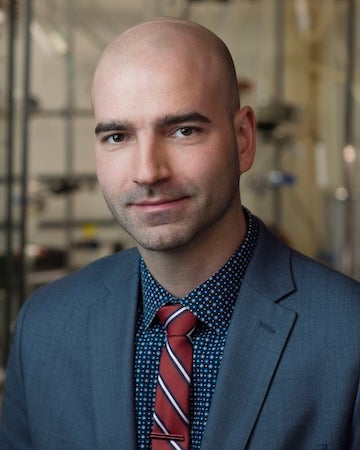The American Chemical Society (ACS) recently announced Rice University’s Angel Martí, David Sarlah and Haotian Wang have won national awards for their outstanding contributions to chemistry. The ACS awards recognize individuals whose work has not only advanced the field but also inspired students, particularly those from underrepresented and disadvantaged backgrounds, to pursue careers in the chemical sciences and engineering.

Angel Martí
Martí, a professor of chemistry, bioengineering and materials science and nanoengineering, has been awarded the ACS Award for Encouraging Underrepresented and Economically Disadvantaged Students into Careers in the Chemical Sciences.
Martí, elected a fellow of the ACS in 2024, was cited for his outstanding accomplishments in encouraging disadvantaged students into careers in chemistry and his unmatched dedication toward promoting diversity, equity and inclusion in science, technology, engineering and mathematics (STEM).
“I have been privileged to work with so many talented students over the years, and it is deeply rewarding to help them see themselves as future scientists and leaders,” Martí said. “This recognition from the ACS affirms that opening doors for the next generation is as important as the research we do in the lab.”

David Sarlah
Sarlah, a professor of chemistry, received the Elias J. Corey Award for Outstanding Original Contribution in Organic Synthesis by a Young Investigator. Sarlah was honored for his creative development of dearomatization strategies and imaginative approaches for the stereo-controlled synthesis of many classes of highly complex natural products.
“This recognition is deeply meaningful because it highlights the impact that fundamental organic synthesis can have on solving challenging problems in chemistry,” Sarlah said. “I am fortunate to work with brilliant students and colleagues whose creativity and dedication make this kind of discovery possible.”

Haotian Wang
Wang, associate professor of chemical and biomolecular engineering, will receive the 2026 Marks-Ipatieff Award in Catalysis, one of the society’s most prestigious honors for early career scientists. The award recognizes Wang’s pioneering research in carbon dioxide electrochemistry and his innovative design and engineering of electrolyzers, which are helping redefine the future of sustainable energy technologies.
“This award is a great honor, and it highlights the importance of catalysis in creating sustainable solutions for energy and the environment,” Wang said. “My team and I are motivated by the urgency of climate and energy challenges, and we’re excited to see our research recognized in this way.”
Recipients will be honored at a ceremony March 24, 2026, in conjunction with ACS Spring 2026 in Atlanta.

